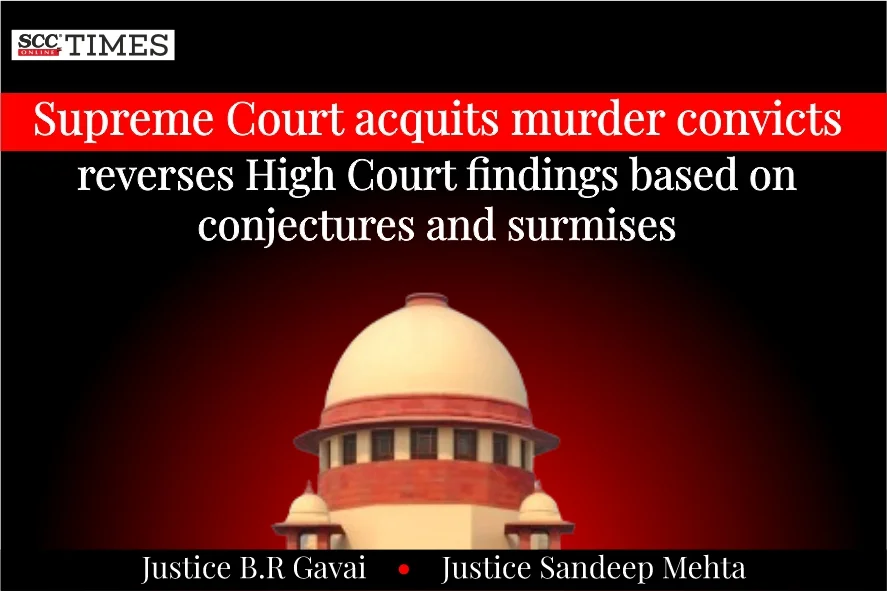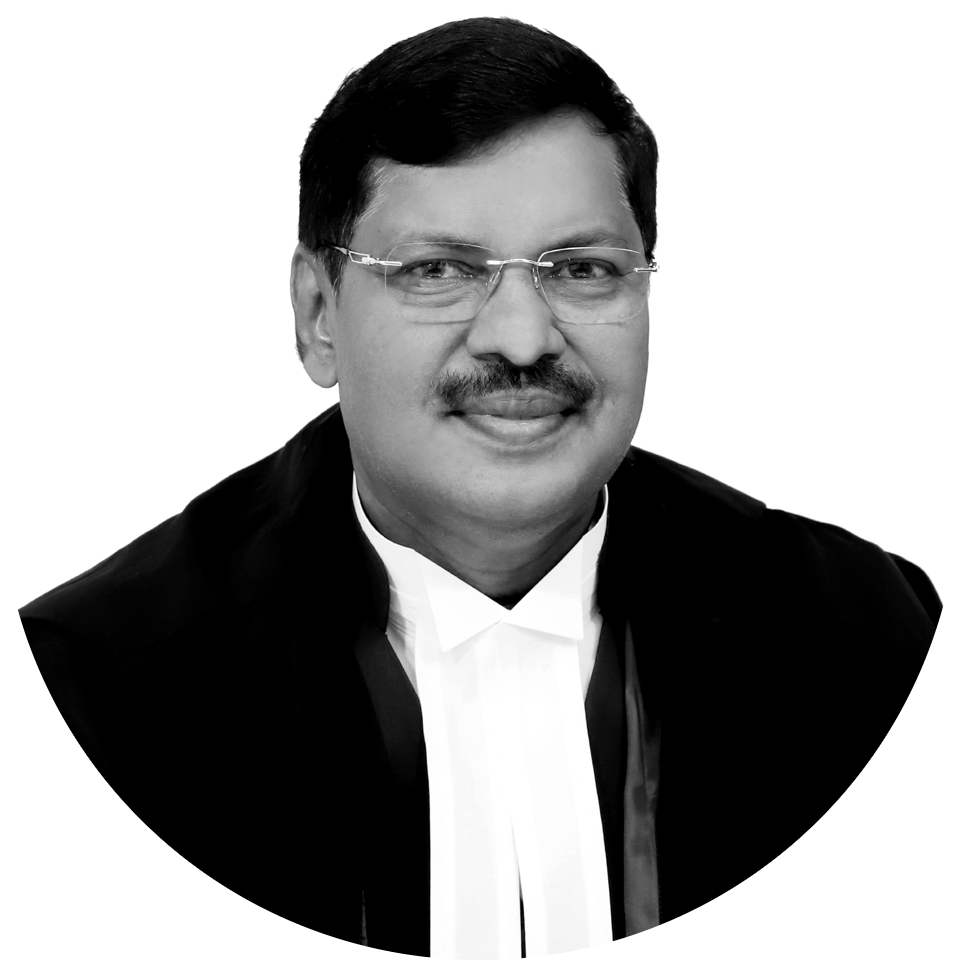Supreme Court: In an appeal challenging the judgment passed by Madhya Pradesh High Court, wherein the Court reversed the judgment of the trial Judge and had convicted the convict 1 and convict 2 under Sections 302 read with Section 34 of the Penal Code, 1860 (‘IPC’) and awarded rigorous imprisonment for life with fine and under Section 201 of IPC rigorous imprisonment for seven years with a fine, the division bench of BR Gavai* and Sandeep Mehta , JJ. while setting aside the impugned judgment, acquitted the convicts of all the charges they were charged with.
Background:
The deceased was in love relation with the sister of convict 1. The deceased resided with her at Agra for about eight months and then returned. Thereafter, the marriage of the girl was solemnized with some other person. Even then, they were in contact with each other. Due to this enmity, in 1992 the convicts caused death of the deceased in furtherance of their common intention. At the conclusion of the trial, the trial Judge acquitted the convicts since the prosecution failed to prove the case beyond reasonable doubt. The State preferred an appeal before the High Court, wherein the Court, by the impugned judgment, reversed the finding of the trial Judge. Being aggrieved thereby, the present appeal was filed.
Analysis:
The Court said that undoubtedly, the prosecution case rests on circumstantial evidence. After taking note of Sharad Birdhichand Sarda v. State of Maharashtra, (1984) 4 SCC 116, and said that it is necessary for the prosecution that the circumstances from which the conclusion of the guilt is to be drawn should be fully established.
The Court reiterated that the suspicion, however strong it may be, cannot take the place of proof beyond reasonable doubt. An accused cannot be convicted on the ground of suspicion, no matter how strong it is. An accused is presumed to be innocent unless proved guilty beyond a reasonable doubt.
The Court noted that the present case is a case of acquittal reversal and said that the law regarding interference by the Appellate Court is well crystallized. Unless the finding of acquittal is found to be perverse or impossible, interference with the same would not be warranted.
The Court said that it is not in dispute that the death of the deceased is a homicidal death and as such, it will not be necessary to refer to the medical evidence. The only question that remains is as to whether the prosecution has proved its case beyond reasonable doubt and as to whether the convicts are guilty of committing the crime.
The Bench said the trial Judge has done an elaborate exercise of discussing the evidence in detail, and concluded that the prosecution has failed to prove any of the incriminating circumstances beyond reasonable doubt and in no case, the chain of circumstances, which was so interlinked to each other that leads to no other conclusion, than the guilt of the convicts. Therefore, the Court held that the findings of the trial Judge are based on correct appreciation of the material placed on record.
The Court remarked that this elaborate exercise of the trial Judge has been washed away by the Division Bench of the High Court in a totally cursory manner.
As per the Court, the trial Judge had given sound and cogent reasons for discarding the testimony of the Investigating Officer and the other witnesses. Thus, it viewed that the High Court has totally erred in observing that the trial Judge had brushed aside the evidence of the IO simply based on conjectures and surmises. Rather, it is the judgment of the High Court which is based on conjectures and surmises.
The Court further added that though the High Court has referred to the law with regard to the scope of interference in an appeal against acquittal, the High Court has totally misapplied the same and a very well-reasoned judgment based upon the correct appreciation of evidence by the trial Court has been reversed by the High Court, only on the basis of conjectures and surmises.
The Court said that the High Court could have interfered in the criminal appeal only if it came to the conclusion that the findings of the trial Judge were either perverse or impossible. However, no perversity or impossibility could be found in the approach adopted by the trial Judge. In any case, even if two views are possible and the trial Judge found the other view to be more probable, an interference would not have been warranted by the High Court, unless the view taken by the learned trial Judge was a perverse or impossible view.
Thus, the Court held that the judgment passed by the High Court is totally unsustainable in law.
CASE DETAILS
2024 SCC OnLine SC 481 Ballu State of M.P. |
Advocates who appeared in this case For Appellant(s): For Respondent(s): |
CORAM :









